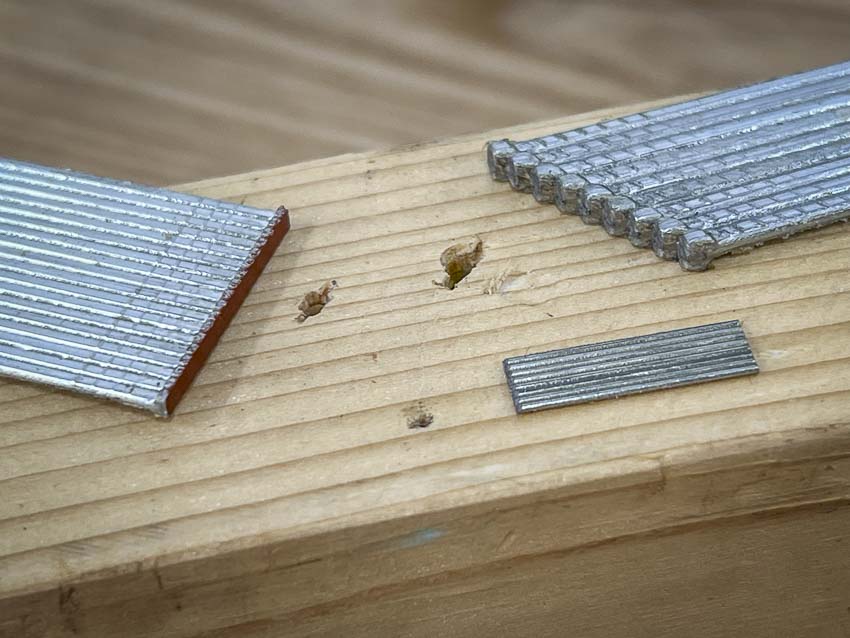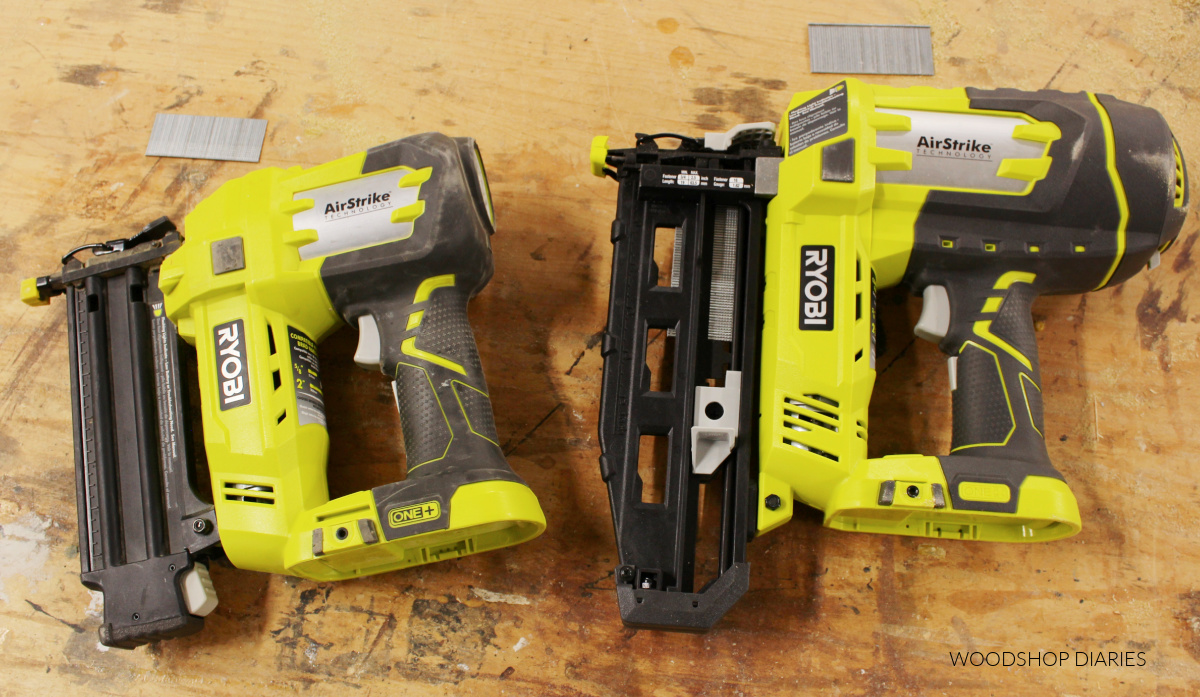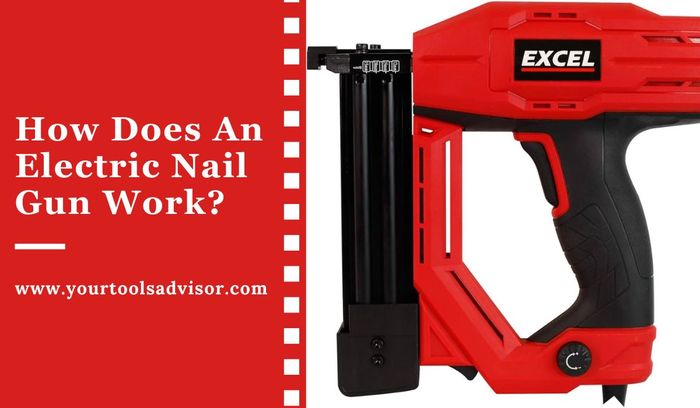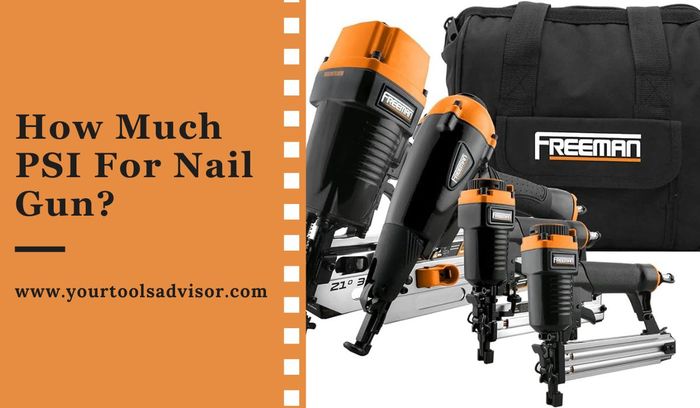A finish nailer is a tool that fires larger nails, typically used for heavier woodworking projects, while a pin nailer is used for delicate trim work and crafts, firing smaller nails. When comparing finish nailers to pin nailers, it’s important to understand their specific applications and uses.
While both tools are used for fastening materials together, they differ in terms of nail size and the types of projects they are suited for. A finish nailer typically fires larger gauge nails, ranging from 15- 16 gauge, and is commonly used for heavier woodworking projects such as furniture or cabinets.
These nails provide a stronger bond and are more resistant to pulling out. On the other hand, a pin nailer fires smaller gauge nails, typically 23- 18 gauge, which leave much smaller holes in the material. This makes it ideal for delicate trim work, securing fragile pieces, or when you want to conceal the nail holes as much as possible. Both tools have their advantages and it ultimately depends on the specific project and requirements. This article will delve deeper into the differences between finish nailers and pin nailers, their key features, and help you determine which tool is best suited for your needs.
Overview Of Finish Nailer And Pin Nailer
Finish nailers and pin nailers are both nail guns that are widely used in woodworking and construction projects. The main difference between the two lies in the size and type of nails they use.
A finish nailer is a powerful tool that is designed for driving larger and thicker nails, typically between 15 and 16 gauge. It is commonly used for attaching baseboards, crown moldings, and other trim work. With its higher holding strength, a finish nailer ensures a sturdy and durable connection.
On the other hand, a pin nailer is used for lighter and more delicate projects. It uses thin 23-gauge nails, which are almost invisible when driven into the material. Pin nailers are perfect for attaching delicate moldings, securing thin panels, or assembling small pieces of furniture.
Both finish nailers and pin nailers make the nailing process quick and efficient, saving time and effort. However, it is important to choose the right tool based on the specific requirements of your project.
Pros And Cons Of Finish Nailer
The pros of a finish nailer include its ability to drive larger nails and provide a stronger hold, while the cons include the potential for visible nail holes. On the other hand, a pin nailer is great for delicate trim work but may lack the holding power required for heavier materials.
It’s important to consider the specific project needs when choosing between the two.
Advantages Of Using A Finish Nailer
A finish nailer is a versatile tool that offers several benefits. First and foremost, it provides a secure and durable hold. The nails used with a finish nailer are typically larger and thicker compared to those used with a pin nailer, making them ideal for projects that require solid connections. Additionally, a finish nailer allows for countersinking, which means the nail can be driven below the surface of the material, resulting in a professional and polished finish. Moreover, when using a finish nailer, there is no need to fill nail holes, saving both time and effort.
Limitations And Disadvantages Of Finish Nailer
Despite its advantages, a finish nailer does have some limitations. One major drawback is that it can potentially cause damage to the material due to its larger and more powerful nails. This tool is not suitable for delicate or thin materials like trim or molding, as it may split or damage them. Additionally, a finish nailer requires an air compressor or a battery-operated power source, which can be an additional expense for users who do not already own these tools.
Comparison Of Features With Pin Nailer
| Features | Finish Nailer | Pin Nailer |
|---|---|---|
| Suitable for delicate materials | No | Yes |
| Nail size | Larger | Smaller |
| Countersinking | Yes | No |
| Required power source | Air compressor or battery | Battery |
Pros And Cons Of Pin Nailer
Pin nailers are a versatile tool in the world of woodworking. They offer several advantages over traditional finish nailers. Firstly, pin nailers are much smaller and lighter, making them easier to handle and maneuver in tight spaces. They also leave smaller and less noticeable holes in the workpiece, resulting in a more professional and clean finish.
Despite these benefits, pin nailers do have their limitations. Due to their smaller size, they have a lower holding power compared to finish nailers, which means they are not suitable for heavy-duty applications. Additionally, pin nailers are not as effective at securing thicker or denser materials.
When comparing the features of pin nailers and finish nailers, there are some key differences to consider. Pin nailers generally use smaller gauge nails, ranging from 23 to 18, while finish nailers use larger gauge nails, typically 15 to 16. The smaller gauge nails used by pin nailers result in less visible holes, but also have reduced holding power.
| Advantages of Pin Nailer | Limitations and Disadvantages of Pin Nailer |
|---|---|
| – Smaller and lighter | – Lower holding power |
| – Creates less noticeable holes | – Not suitable for heavy-duty applications |
| – Easier to maneuver in tight spaces | – Less effective with thicker or denser materials |
Differences In Nail Types And Sizes
When it comes to the comparison between finish nailers and pin nailers, understanding the differences in nail types and sizes is crucial.
Finish nailers are designed for larger and more robust nails, such as 15-gauge or 16-gauge nails, which are ideal for heavy-duty woodworking projects. These types of nails provide excellent holding power and are commonly used for attaching baseboards, crown moldings, and door casings. Additional nail types suitable for finish nailers include brad nails, angled finish nails, and even some smaller gauge nails like 18-gauge nails for more delicate trim work.
When it comes to nail sizes compatible with finish nailers, it is important to consider the thickness and length of the nails for efficient and secure fastening. The most common nail size ranges from 1-1/4 to 2-1/2 inches, depending on the specific application and material being nailed.
On the other hand, pin nailers utilize much smaller and delicate 23-gauge nails. These nails are tiny and leave virtually no visible marks, making them perfect for delicate trim and furniture projects where minimal visibility is desired. Pin nailers are commonly used to attach thin moldings, decorative trims, and veneers.
In conclusion, understanding the differences in nail types and sizes is essential for choosing the right tool for your woodworking projects. Whether using a finish nailer for heavy-duty applications or a pin nailer for delicate work, selecting the appropriate nail type and size ensures secure and professional-looking results.
Applications And Uses Of Finish Nailer
| Applications and Uses of Finish Nailer |
A finish nailer is a versatile tool that is commonly used in various woodworking projects. Its primary purpose is to securely attach finishing materials such as trims, moldings, and baseboards to surfaces like walls, cabinets, and furniture. This type of nailer uses 16 or 18-gauge finish nails, which are narrower and have a smaller head compared to other types of nails.
Finish nailers are ideal for tasks that require a more polished and professional finish. They provide excellent holding power and leave behind smaller and less noticeable holes that can be easily filled. Some common tasks where a finish nailer is the preferred choice include:
- Installing crown molding
- Attaching baseboards and shoe molding
- Securing chair railings
- Adding window and door casings
- Mounting decorative trim and paneling
These examples illustrate the broad range of projects that can benefit from the precision and versatility of a finish nailer. Whether you’re a professional carpenter or a DIY enthusiast, having a finish nailer in your toolbox can greatly simplify and enhance the overall quality of your woodworking projects.
Applications And Uses Of Pin Nailer
A pin nailer is an essential tool for various woodworking projects. Its compact size and minimal hole size make it perfect for delicate trim work, attaching small moldings, and securing delicate pieces of wood without splitting or damaging them. Here are some common tasks where a pin nailer is the preferred choice:
| Task | Examples |
|---|---|
| Installing trim and moldings | Crown molding, baseboards, picture frames |
| Securing thin or delicate materials | Veneer, thin plywood, lightweight trims |
| Assembling small woodworking projects | Small boxes, cabinets, drawers |
| Creating temporary holds | During glue-ups or clamping |
The pin nailer’s narrow 23-gauge pins leave minimal visible marks, reducing the need for extensive touch-ups and sanding. It is important to note that pin nails are not suitable for structural applications or heavy-duty tasks. For those, a finish nailer with larger gauge nails would be more appropriate. Overall, a pin nailer is an invaluable tool for intricate and delicate projects, providing efficient fastening and a professional finish.
Factors To Consider When Choosing Between Finish Nailer And Pin Nailer
| Factors to Consider When Choosing Between Finish Nailer and Pin Nailer |
|---|
| Comparison of power and nail size requirements |
Deciding between a finish nailer and a pin nailer requires careful consideration of various factors. One important factor to evaluate is the power and nail size requirements. Finish nailers typically have more power and can drive larger nails, making them suitable for heavier-duty applications. On the other hand, pin nailers are designed for more delicate work and use smaller gauge nails that leave virtually no visible holes.
Another factor to take into account is the material types and project complexity. Finish nailers are better suited for projects involving hardwoods and medium to large-sized materials. They offer more holding power, making them ideal for applications that require sturdy fastening. Pin nailers, on the other hand, are perfect for delicate materials and intricate projects where you need a secure but less visible fastening solution.
Lastly, it’s important to consider workspace limitations and safety concerns. Finish nailers usually require a larger clearance space to accommodate their size and more powerful operation. Pin nailers, with their smaller size and minimal wood penetration, can be used in tighter spaces without the risk of splitting the material or causing damage.

Credit: www.protoolreviews.com
Frequently Asked Questions On Finish Nailer Vs Pin Nailer
Is A Pin Nailer The Same As A Finish Nailer?
A pin nailer is not the same as a finish nailer. Both are used for different purposes. A pin nailer is used for delicate woodworking projects, while a finish nailer is used for heavier tasks like securing trim and baseboards.
What Are Pin Nailers Good For?
Pin nailers are great for delicate finishing work, like attaching trim or molding. They leave tiny, nearly invisible holes in your workpiece. They’re lightweight, easy to maneuver, and perfect for crafts, cabinet making, or any project where you need precision and minimal visibility.
Do You Really Need A Pin Nailer?
Yes, a pin nailer is a valuable tool for woodworking projects. It allows for precise and secure attachment of lightweight materials. Whether you’re working on trim, molding, or delicate pieces, a pin nailer provides convenience and accuracy. It’s a worthwhile investment for any DIY enthusiast or professional woodworker.
What Kind Of Nail Gun For Baseboards?
Use a finish nail gun for baseboards. It’s designed for precise and clean installations. Its small nails won’t split the wood and can be easily concealed. This ensures a professional finish without visible nail holes. A finish nail gun is the best choice for baseboards.
Conclusion
To sum up, the choice between a finish nailer and a pin nailer ultimately depends on the project requirements and personal preferences. Both tools have their unique advantages and applications. While pin nailers are ideal for delicate and lightweight tasks, finish nailers provide a sturdy and secure finish.
Understanding the differences and considering the specific needs will help you make an informed decision. Happy nailing!





Leave a Reply